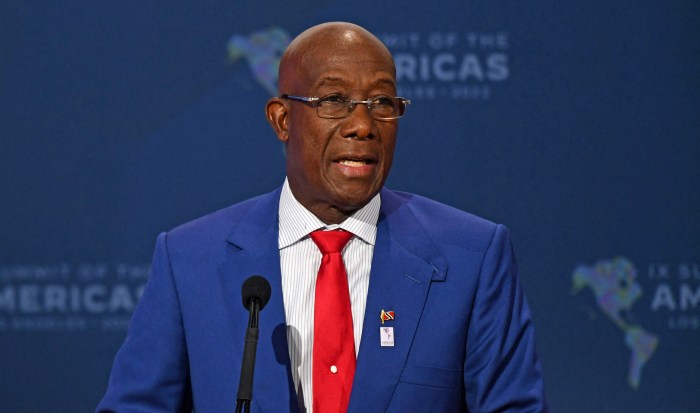Music lovers in Trinidad and Tobago, elsewhere in the Eastern Caribbean and across the diaspora have been mourning the loss of Joey Lewis, an iconic name among music-making standouts who began his unparalleled career as a bandleader in Trinidad in the mid-1950s, when still in his teens. After ailing for some time Lewis, 78, died in Port of Spain in the early morning hours of Monday, Feb. 8. It was ironic that Lewis’s death came just hours before the official start of this year’s Carnival celebrations, Carnival having been one of the Lewis orchestra’s annual music-making arenas, before withdrawing from such participation some years ago.
Lewis stood alone among leaders of popular bands in Trinidad and Tobago in his uncanny ability to endure through the decades that saw transitions in the music fare that was offered to the public. Those changes included the combo phase of the 1960s, the displacement of much live music by DJs and the introduction of new-style soca music that was the preferred choice of younger audiences. But the Lewis orchestra persevered mainly because of the leader’s remarkable enterprise and his undying belief that there would always be an audience for the particular music product that had become his signature.
Lewis demonstrated quite early that he was not about merely following the pack, but carving a niche all his own. True to that determination, he introduced musical innovations that set trends in Trinidad and Tobago and beyond. These included a fetching new strumming style for the guitar (one of two instruments he mastered, the other being the keyboard), utilization of the guitar as a lead and solo instrument, and his particular flair for the Latin genre. He also constantly showed off his compositional skills, many of the band’s popular hits being originals.
Those hits included “Joey Saga,” “Peanut Vendor,” “Vuela Vuela La Paloma,” “Count Five,” “In a Monastery Garden,” “Jerry’s Dance,” “Debbie” “The Air That I Breathe,” “Pint O’ Wine”…
Lewis also enjoyed a reputation as a leader who was genuinely beloved by his musicians, as a consequence of which it was not uncommon for musicians to be part of the group for two or three decades and even longer. Such respect and admiration from his players engendered a loyalty that was in fact mutual between Lewis and his musicians.
Over the years, besides the Joey Lewis Orchestra’s popularity at home, the band maintained fan bases abroad, most notably in neighboring Caribbean islands and in North America.
For his sterling cultural contribution to his country, Lewis was honored by the government of Trinidad and Tobago with one of the highest national accolades, the Humming Bird Gold Medal.
As befits someone who had been a pop culture figure for so many years, Joey Lewis’ funeral last Saturday, featuring the Lewis orchestra and deliberately maintaining an upbeat mode for the most part, was held at the Grand Stand, Queen’s Park Savannah in Port of Spain. As one newspaper report indicated, no church would have been able to accommodate the thousands who turned up to bid farewell to a legend.





















